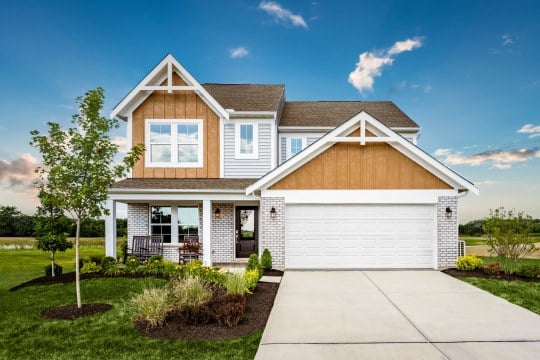Let's pretend you're a real estate investor and somebody asks you what a leasehold estate is. Are you most likely to know what it indicates?
It may be simple to pretend while you remain in discussion with somebody, however that does not work when your money and time are at threat due to the fact that of a deal.
The success of realty investing depends on your understanding, knowledge, and willingness to read more. With that, you can boost profitability and minimize your threats. You can see red flags more plainly, understand how pricey they could be, and select a much better or more profitable residential or commercial property.
If you're unsure what a leasehold estate is and wonder about how it could affect your financial investments, continue reading.
A leasehold estate allows the occupant to seize a real residential or commercial property for a time period. If you're a property manager, you lease residential or commercial property to your occupants and have a leasehold estate.
Leasehold estates frequently differ based on the residential or commercial property owner and structure or area. Some may last a couple of days or years. With that, tenants might have various rights for leasehold estates. Estate leaseholds could fall into four classifications, as well.
As the proprietor, you develop a contract that claims the tenant pays rent every month to have a short-term right to utilize the residential or commercial property as they desire. Ultimately, the renter remains in excellent standing and needs to pay rent each time it is due.
If one party doesn't follow through, belongings can be overturned from the tenant back to the landlord. In many cases, the renter has an extended time frame to use it, such as six months or one year. The leased residential or commercial property is a legal estate, and the leasehold estate could be bought/sold on the open market.
Therefore, a leasehold estate refers to various things.
Types of Leasehold Estates
There are numerous kinds of leasehold estates out there, and it is vital to comprehend the particular qualities of each one. For instance, you have a tenancy for [specified] years, occupancy at will, estate at sufferance, and a periodic occupancy alternative.
Estate for Years
The estate for several years is a composed agreement where the information are explicitly defined. This consists of the period of time the person resides in the residential or commercial property, which might be a prolonged period. With that, the payment quantity expected is included.
A leasehold estate for years is in some cases called a fixed-term tenancy. This implies that the composed lease contract is just genuine residential or commercial property and notes the start and ending dates.
With this leasehold agreement, the agreement may last for one week or a year but is absolutely a set duration. Here, the person may occupy the residential or commercial property for the period. After the estate for several years or fixed-term occupancy is up, there is frequently an option to restore, but that does not constantly happen.
Periodic Tenancy
Sometimes called an estate from duration to duration, a regular tenancy shows that the occupant's time is contracted for an amount of time that isn't defined, and there's no expiration date. The terms of this leasing were specified for a specific time frame, however the end date continues and on until the renter or owner supplies a notice to end.
This is comparable to a lease since completion date is finished, however the renter can continue inhabiting the space since it instantly renews unless the renter/owner decides to end the arrangement.
With an estate from duration to period, it could be an oral lease for the residential or commercial property for a given period.
However, when the specific time period is over for the residential or commercial property, either celebration should provide a notice to give up.
Estate at Sufferance
A tenancy at sufferance implies that the original lease ended, however the occupant doesn't want to vacate the residential or commercial property. Therefore, he is remaining without the consent of the owner or proprietor.
Usually, an estate at sufferance implies that the owner must begin expulsion procedures. However, when the proprietor accepts payment once the lease expires, it is considered a month-to-month lease.
Therefore, the renter has a right to inhabit the residential or commercial property and got the proprietor's consent through the payment being received.
With that stated, a leasehold estate at sufferance implies that the property manager can not make money so that he or she can take back belongings of the residential or commercial property later on.
Estate at Will
An occupancy at will is one kind of leasehold estate that might face termination at any provided time by the property owner or occupant. Based on typical law, no contract needs to be signed by the lessee or lessor and does not define a length of time that the occupant uses the leasing. With that, there are no specifics about payment. Ultimately, this contract is governed by state law and has various terms.
The tenant or proprietor can occupy the residential or commercial property or leave with no prior notice.
You can also have an estate at will if the occupant wishes to move in instantly but can't negotiate a lease. However, it terminates when the composed lease exists. If the lease stops working to get developed, the occupant must move.
Leasehold Improvements to the Lease Agreement
Once the lease contract is settled, the lessee (tenant) utilizes the space for the functions allowed in the lease. They may deal with ceilings, flooring area, pipes, and anything else that aids with leasehold enhancements. Those are recorded as set possessions on the balance sheet of the property manager or lessor.
Both the occupant and landlord should concur on what is put in the lease for the leasehold estate enhancements on the residential or commercial property. Depending on the contract, the proprietor or tenant may spend for the renovations. Sometimes, proprietors agree to pay to lure brand-new renters to sign the lease.
Example of a Leasehold Estate
Leasehold estates are normal for brick-and-mortar sellers. Best Buy Co. is a fantastic example. It leases most of its buildings to make enhancements that fit the aesthetic style and functionality needed for the residential or commercial property.
Rent expenditure uses the straight-line basis to end the preliminary duration of the lease term. Any differences between the rent payable and straight-line costs are postponed as rent.

Leasehold Interest

A leasehold interest is the contract where an entity or person (lessee) rents land from the owner or lessor for a specific amount of time. That way, the renter has special rights to utilize and acquire the residential or commercial property or property for that time.
You have four kinds of leasehold estates and interests, including routine occupancy, tenancy for many years, and the others.
This often refers to the ground lease and lasts several years. For example, you might rent a lot and take ownership for 40 years, deciding to construct residential or commercial property on the grounds. Then, you lease it out and make rental earnings while paying the owner to utilize the lot.
With such things, it's better to get a written arrangement that looks similar to the tenancy for several years lease.
What's the Difference Between a Leasehold Estate and a Freehold Estate?
A freehold estate is likewise part of property, however it's not the same as a leasehold estate.
The big distinction here is that a freehold estate offers special rights for unrestricted timespan. Depending on the type of leasehold estate, there's a particular end/beginning to consider.
A leasehold estate is anything that can be rented, such as a residential or commercial property, building, or system within a building. The kind of leasehold estate you require depends on your objectives.
It's crucial to comprehend what a leasehold arrangement is and how it affects the property you purchase or offer. Generally, the genuine estate could be property or commercial. You can buy/sell realty more confidently now that you have a better understanding of the term.
Frequently Asked Quesitons

What Is A Leasehold Estate?
A leasehold estate is a legal file that provides the tenant the right to seize genuine residential or commercial property for some time period. These documents vary in regards to the rights given to the renter, along with the time period that the occupant is going to be occupying the residential or commercial property.
David Bitton brings over 2 decades of experience as a real estate financier and co-founder at DoorLoop. A former Forbes Technology Council member, legal CLE & TEDx speaker, he's a best-selling author and believed leader with discusses in Fortune, Insider, Forbes, HubSpot, and Nasdaq.







